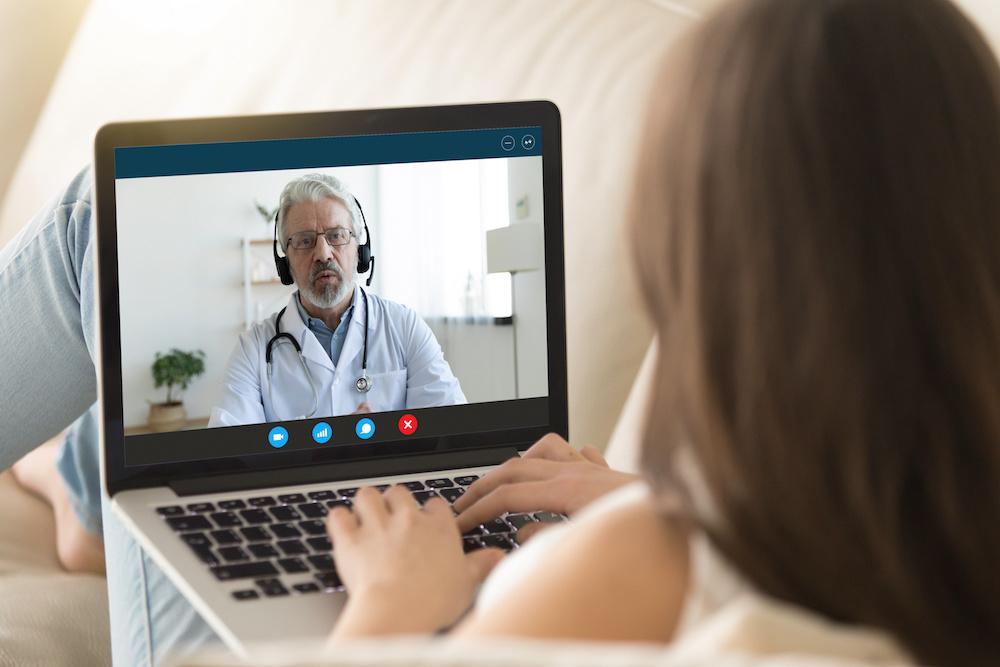
The internet has irreversibly transformed many aspects of our lives, particularly health care. Amidst the convenience of digital shopping and online banking, an incredible opportunity has arisen for women worldwide. With just a few clicks, they can now access a wealth of resources and support relating to reproductive and women’s health. This digital revolution, offering unprecedented access to information, guidance, and treatments, has become a powerful tool for women seeking to take control of their mental and physical health.
Understanding women’s health is not simply about the absence of disease or ailments; it encompasses much more than that. It’s about comprehending the unique needs of women’s bodies, including their mental, physical, and emotional well-being, and empowering them to make informed decisions about their health. This empowerment comes with the understanding that women’s health matters and is not a luxury but a fundamental right.
In recent years, the Internet has emerged as a key player in providing women with the tools they need to make informed decisions about their health. We’ve moved beyond just “Dr. Google” and symptom-checking to a place where digital health platforms can provide women with personalized, medically sound, and accessible information. From interactive health forums to telemedicine services and online pharmacies, the digital world is increasingly playing a significant role in democratizing women’s healthcare.
Accessing healthcare online brings with it several benefits, particularly for women. It’s not just about the convenience of scheduling appointments from the comfort of home or the privacy of discussing sensitive topics. It’s about breaking barriers, democratizing access, and ultimately providing a platform for women, regardless of their socioeconomic background or geographical location, to receive the medical attention they need.
However, like any other service accessed via the Internet, online women’s healthcare needs to be navigated safely and responsibly. It’s essential to know reliable sources of information, to differentiate between facts and myths, and to ensure that the digital health services used are authorized and credible. Keep reading, and together, we will delve deeper into online reproductive and women’s health in this spirit of empowerment and informed decision-making.
1. Sexual Health and Its Importance

Sexual health forms a vital part of women’s health and well-being. Unfortunately, due to cultural taboos and societal stigmas, it often becomes a neglected aspect. Sexual health matters; it’s an integral part of our overall health. Good sexual health can enhance our quality of life and relationships and even increase sexual stamina. Just like any other facet of health, sexual health, too, needs attention and care. Online resources offer information about maintaining sexual health, contraceptive options, preventing STDs, and even therapies to increase sexual stamina. Furthermore, the confidentiality and anonymity of online platforms can help women discuss their concerns without any embarrassment or fear of judgment.
2. Menstrual Health and Online Resources
Menstruation, an essential part of women’s reproductive cycle, often comes with its fair share of questions and concerns. From tracking cycles and predicting fertile windows to managing period pain, online resources can be a beacon of support.
Numerous apps allow women to monitor their menstrual cycles, giving them a sense of predictability and control. These platforms can provide insights about irregularities and potential hormonal imbalances and even aid in family planning or detecting early signs of pregnancy. Furthermore, educational websites and forums help debunk myths and misinformation around menstruation, promoting a healthier and more informed perspective. Online platforms also offer various products to make periods more manageable. Women can choose what suits their bodies and lifestyles, from organic sanitary products to pain-relief options and hormone-friendly food supplements.
3. Understanding and Treating UTIs Online
Urinary Tract Infections (UTIs) are a common health issue among women, but they often go unreported due to embarrassment or lack of information. Thankfully, the online world is pivotal in changing this scenario. Online healthcare platforms can provide crucial information about UTI symptoms and preventative measures, helping women identify when they might be experiencing a UTI. More importantly, with the advent of telemedicine, women can now seek an online UTI treatment from the comfort of their homes. Online medical consultations allow them to describe symptoms privately, and medical professionals can then prescribe appropriate antibiotics or other treatments as needed. Remember that while online treatments can provide immediate relief, it’s important to follow up with in-person consultations for recurrent UTIs to identify potential underlying conditions.
4. Online Mental Health Resources for Women

The significance of mental health is often overlooked in discussions about women’s health. Yet, psychological well-being is as important as physical health. Online resources are becoming increasingly critical in breaking the stigma around mental health and providing necessary support. From online therapy and counseling sessions to mental health apps and forums, digital platforms provide various resources for women. These platforms cater to different aspects of mental health, including stress management, depression, anxiety, postpartum depression, and more. Women can find resources specific to their needs, like support groups for new mothers, forums for women going through menopause, or mental health resources focusing on the unique pressures faced by women.
5. Self-Care and Online Wellness Resources
Caring for one’s overall well-being is only complete with a focus on self-care. The online sphere is abundant with wellness resources encouraging women to prioritize their well-being and indulge in self-care routines. From guided meditation apps, yoga classes to nutritional advice, these resources offer comprehensive support.
Furthermore, digital platforms can connect women to a community of like-minded individuals, where they can share experiences, offer encouragement, and learn from each other. This interactive exchange often brings a sense of belonging, fostering mental and emotional health.
Remember, self-care isn’t just about pampering but acknowledging your needs and taking steps to fulfill them. Prioritizing self-care can significantly improve the quality of life, enhance self-esteem, and promote a positive outlook.
6. Telemedicine and Online Consultation for Women’s Health

Telemedicine revolutionizes women’s healthcare by offering convenient, safe, timely access to health professionals. Women can schedule appointments, engage in video consultations, receive prescription refills, and even arrange for home-based lab tests.
Moreover, telemedicine breaks barriers in women’s healthcare that have long been influenced by socio-economic factors. For example, women from lower-income groups, who often struggle with the costs and logistics of traditional healthcare visits, find telemedicine a more accessible option. It reduces the need for travel and time off work, making healthcare more affordable and less disruptive to daily life. The technology behind telemedicine also empowers women to take control of their health. They can track their health data, access educational resources, and communicate with healthcare providers in real-time.
This empowerment is particularly important in managing chronic conditions, reproductive health, and during pregnancy. Additionally, telemedicine’s confidentiality and privacy, which you’ll find with telemedicine California, are vital for sensitive health issues, providing a comfortable space for women to discuss their concerns openly. The digital platform also facilitates continuity of care, ensuring consistent monitoring and follow-up, which is crucial for chronic conditions and long-term treatments.
This service is particularly beneficial for women living in remote areas, busy working professionals, or those with mobility issues. Telemedicine allows access to specialists that may not be locally available, such as gynecologists, endocrinologists, or mental health experts. It also offers the ability to seek second opinions easily.
Though telemedicine can’t entirely replace in-person consultations, it is a critical addition to traditional healthcare models, especially for non-emergency situations. Always use certified and trusted platforms for telemedicine services to maintain safety and confidentiality.








